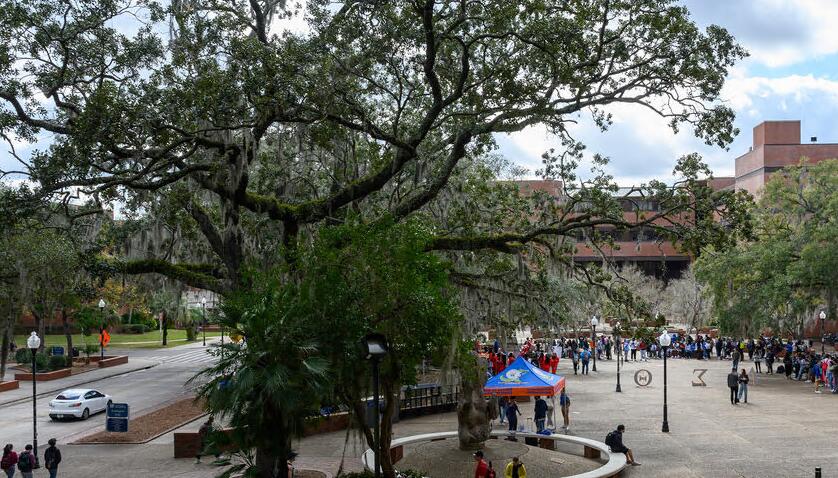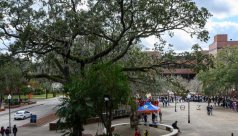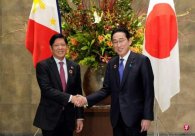 The University of Florida, located in Garneswell, Florida.TODD Anderson for the New York Times
The University of Florida, located in Garneswell, Florida.TODD Anderson for the New York Times
This month, panic began to spread among the faculty and staff of the University of Florida, and spread the news about the admission notice of postgraduate students who did not pay attention to the seven countries.
Among these seven countries, China is the largest source of international students at the University of Florida. The university is an important research university, especially in the field of science, technology, engineering and mathematics.
The guidance principle comes from a new law that the Governor of the Republican Party of Florida; De Santis and the state councilors, which aims to prevent China from impacting the state's public institutions.
It is unclear whether the law is completely banned from hiring Chinese students from the University of Florida and other schools.However, in recent days, when the admissions committee begins to apply for review next year, the different instructions obtained by the professors have sowned uncertain seeds in this flagship university in Florida.
The measures passed this spring restrict the public universities and colleges from seven countries to accept personal or school funding, or participate in cooperation or agreements.These seven countries are China, Russia, Iran, North Korea, Cuba, Venezuela and Syria.
With the increasingly tense Sino -US relations, more and more Republican leaders have implemented new ban on Chinese citizens and entities, and the law and its influence have also followed.Researchers are worried that it has scared away talented Chinese students. These students are also considering going to other states and other countries to study and do research.
These students are worried that coming to Florida will be discriminated against, and Song Qianqian, assistant professor of biological information at the University of Florida said.
She said that in recent days, after the articles about Florida law were published to Chinese social media and major news websites, she received a lot of problems raised by applicants.She said that her research uses artificial intelligence algorithms to better understand cancer and other diseases, and loss of top talents will cause a huge blow to her research.
Last week, the professors at the University of Florida submitted a petition to the leadership of the university calling for a more clear guidance policy in hiring international researchers.The principal of the school, Middot; Sas has served as a Republican of Nebraska in the Senate.
The petition said that this is related to the status of the university as a top university.As of Thursday, more than 300 faculty members have signed a petition.
The original bill of Florida was part of the state legislature that aims to combat the CCP's influence.According to the law, after the approval of the council responsible for supervising the state university, students can be hired according to the specific situation, but it is unclear how the procedure will operate.
A spokesman for the University of Florida stated in a statement that the law has been unanimously passed by the Florida legislature and will not affect the school's enrollment or scholarship.
The school's obligation is to comply with this restriction. The administrative department has clearly conveyed this law to the dean and center director of the colleges. The University of Florida is responsible for the assistant vice president of the media public relations, Steve Middot; Orlando said.He said that the school is still formulating policies and procedures that meet new laws.
The law does not prohibit students from the University of Florida from recruiting students from these seven countries, but doctoral students usually receive an attached job invitation, usually the position of research or teaching assistant.
A petition of faculty and staff said that the university recruits more than 1,000 students from seven countries covered by the law every year.In 2020, 1,100 students (40%of the total number of graduate students at the University of Florida) came from China and 83 students came from Iran.
While waiting for further guidance, some academic departments at the University of Florida are considering whether to interview candidates from these seven countries.Middot, a professor of computer science and chairman of the school's teacher union; Sitram said at least one committee is trying to figure out how to cancel the oral admission notice that has been issued.
All of the country, 24 states have proposed or promulgated legislation restricting Chinese people to buy land, buildings and houses on the grounds that they are worried that national security will be threatened.
In May of this year, Desandis also approved one of the most stringent land ownership ban while signing this research restriction order.Killer) Real Estate within the range.Both laws took effect in July.
Florida is taking action to oppose the largest geopolitical threats in the United States MDASH; Mdash; China, De Santis issued a statement when signing these laws.We are fulfilling our commitment to crack down on China.
In the House of Representatives led by the Republican Party, some people proposed to restore the Chinese plan. This is a project of the Ministry of Justice. It focuses on researchers working in the United States and crack down on Chinese espionage.This work was canceled last year because some people criticized it to hinder scientific research and promote race.
U.S. civil rights advocates said that such policies have taken one -size -fits -all practices for national security threats, leading to more discrimination against Chinese and Asian Americans.
Professor Richard Middot at the University of Florida; Wadada said he was also worried about the potential security risks described by Desandis and other senior officials, and he supported more stringent review of foreign researchers.But Wuda said he did not want to completely ban students and scholars from China.
Many of our best teachers are from China. Wuda said that Chinese students are our best graduate students.
Without more teachers and students from China, our research will not stop, but this will hurt us, he also said.
Li Chenglong, a professor of drug chemistry at the University of Florida, said that he was worried that international students from China and Iran and other countries will cut off talent transportation channels, which is crucial to the United States' dominant position in the global scientific community.
Since then, Li Chenglong's research in the United States has contributed to the development of targeted cancer treatment. The side effects produced by this treatment method are less than the previous methods.
If you don't want to deal with any Chinese government or commercial organization, I don't care, I don't care, he said.But most Chinese students who came here just wanted to stay in this country to pursue their dreams.They have nothing to do with the government.




